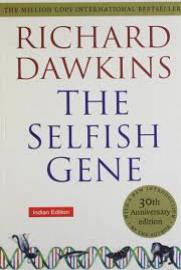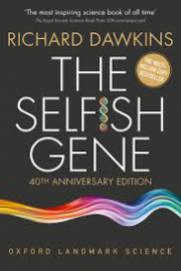id=”bar_wp”>

The selfish gene: the 30th anniversary edition with a new introduction by the author
Inheriting the mantle of the revolutionary biologist Darwin Watson and Crick, Richard Dawkins forced a huge change in the way we see ourselves and the world with the publication of The Selfish Gene. Suppose that instead of thinking about organisms that use genes to reproduce, which we have done since Mendel’s work was rediscovered, we turn it around and imagine that our genes “build and entertain us to produce more genes. The simple twist seems to respond to many puzzles that have baffled scientists for years, and we haven’t thought about evolution in the same way since.
Why are there miles and miles of “unused” DNA in each of our bodies? Why should a bee give up its own breeding opportunity to help feed its sisters and brothers? With the clarity of a prophet, Dawkins told us the answers from the perspective of molecules competing for limited space and resources to produce more of their own kind. He took fascinating examples from all biological fields and paved the way for a serious reassessment of evolution. He also introduced the concept of self-production of ideas or memes, which (apparently) people use exclusively to spread them. If we are dolls, he says, we can at least try to understand our chains. Rob Lightner
A prominent scientist and the world’s leading atheist affirms the essentiality of believing in God and the grave harm that religion has caused to society, from the Crusades to 9/11. The Lost Symbol by Dan Brown (PDF)
With precision and intelligence, Dawkins examines God in all its forms, from the tyrannical genre of the Old Testament to the most benign (but illogical) celestial watchmaker preferred by some illustrious thinkers. Think of the most important arguments in favor of religion and prove the maximum probability of a supreme being. It shows how religion leads war, promotes bigotry and mistreats children and reinforces its points with historical and contemporary evidence.
Good Delusion makes a compelling argument that believing in God is not only bad, but can also be deadly. It also provides a stimulating insight into the benefits of atheism for the individual and society, among which is a clearer and truer appreciation of the wonders of the universe than any faith can discover..
